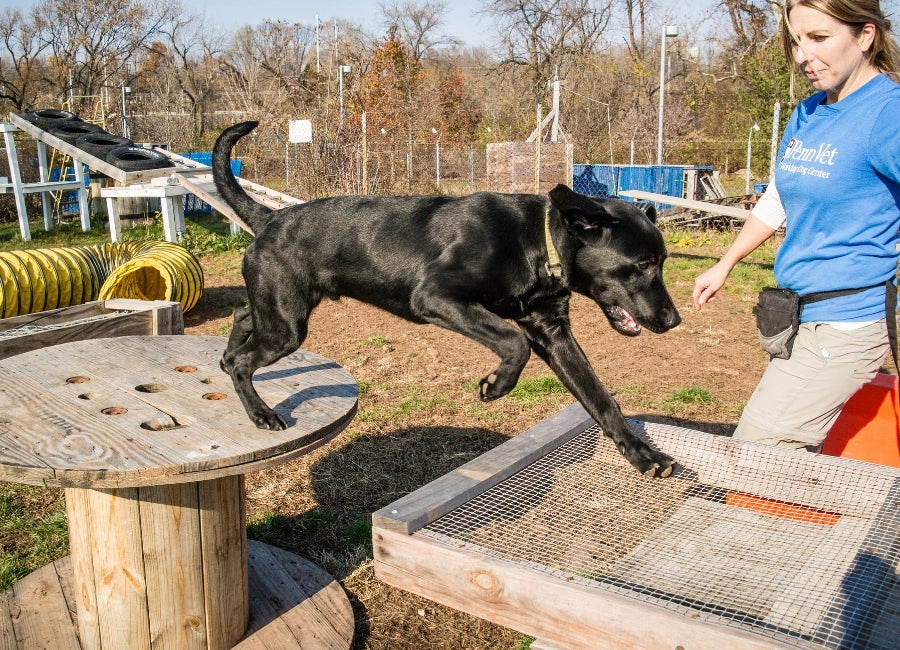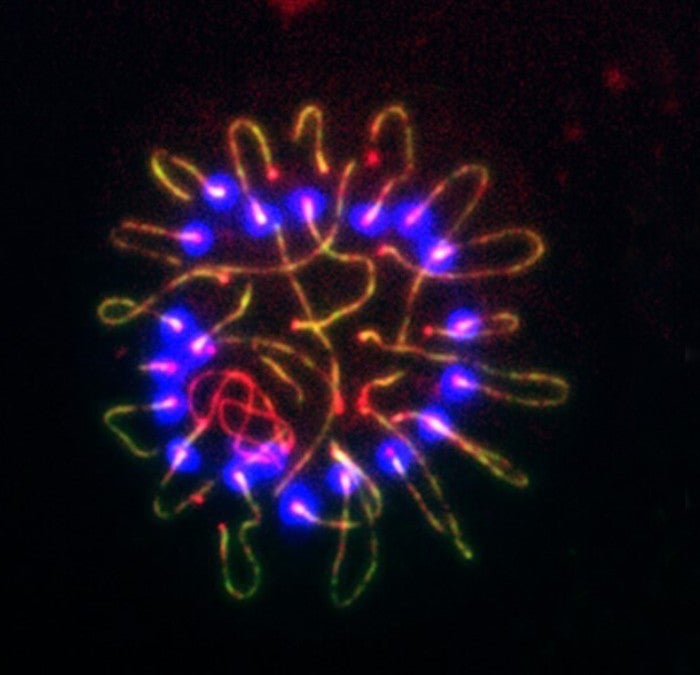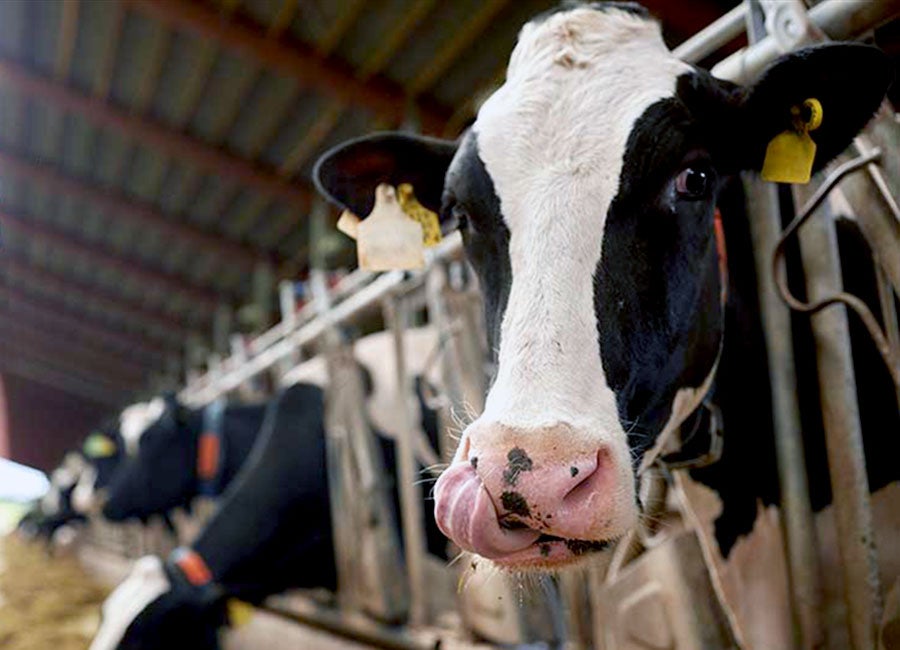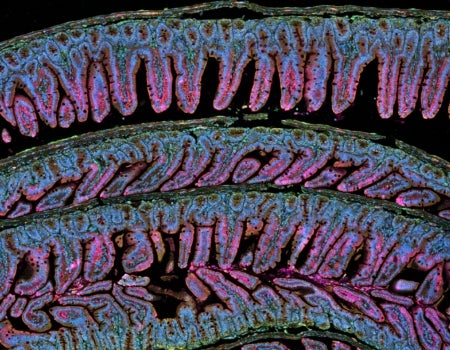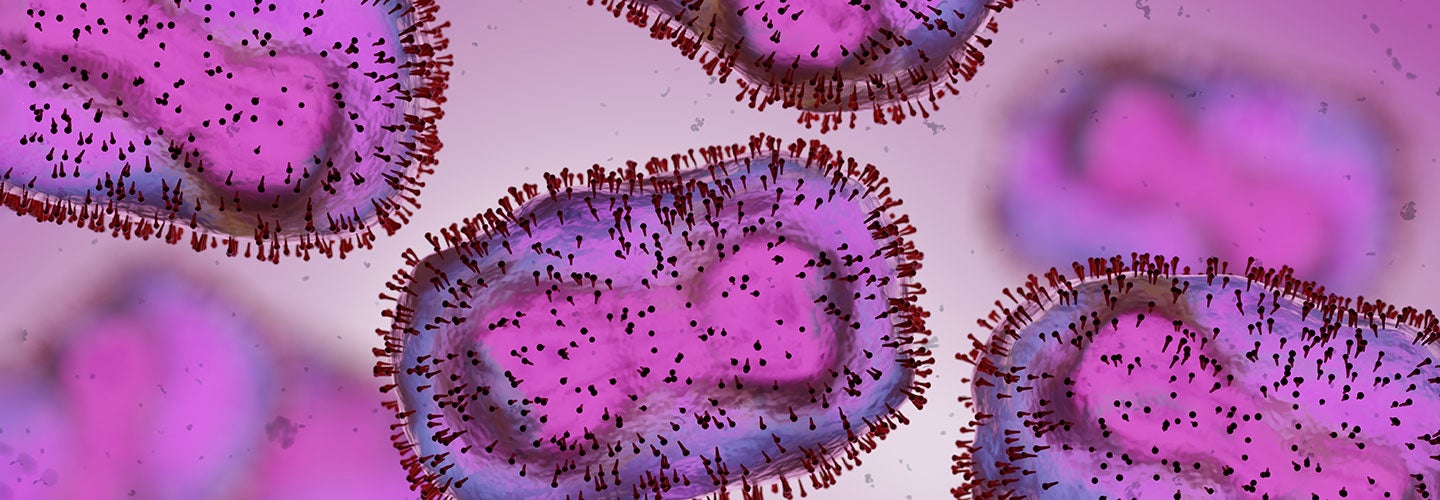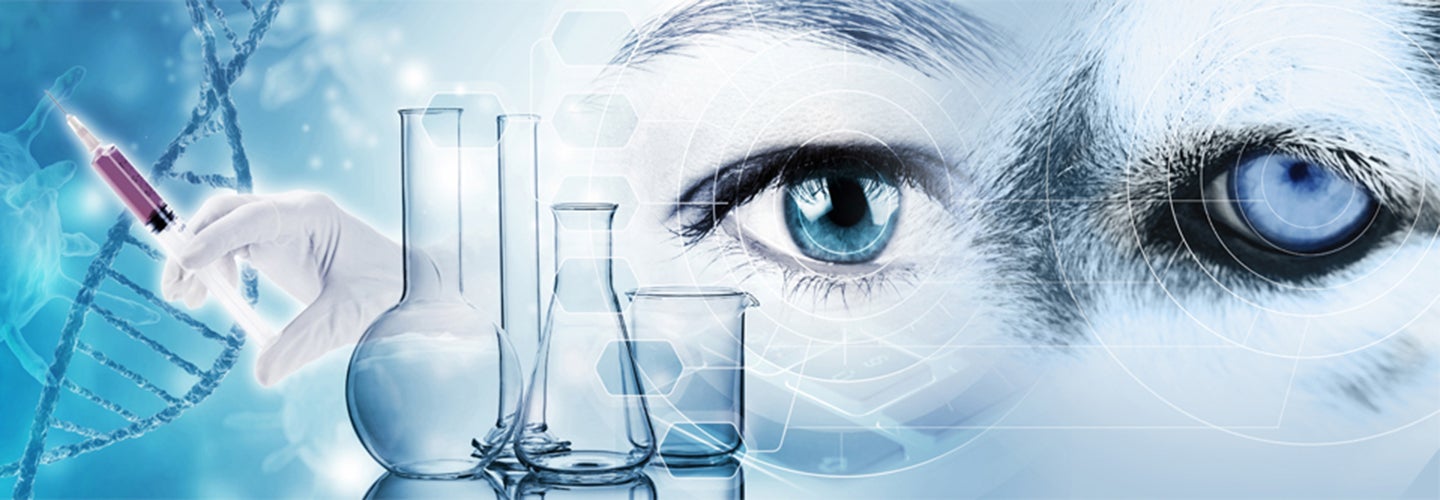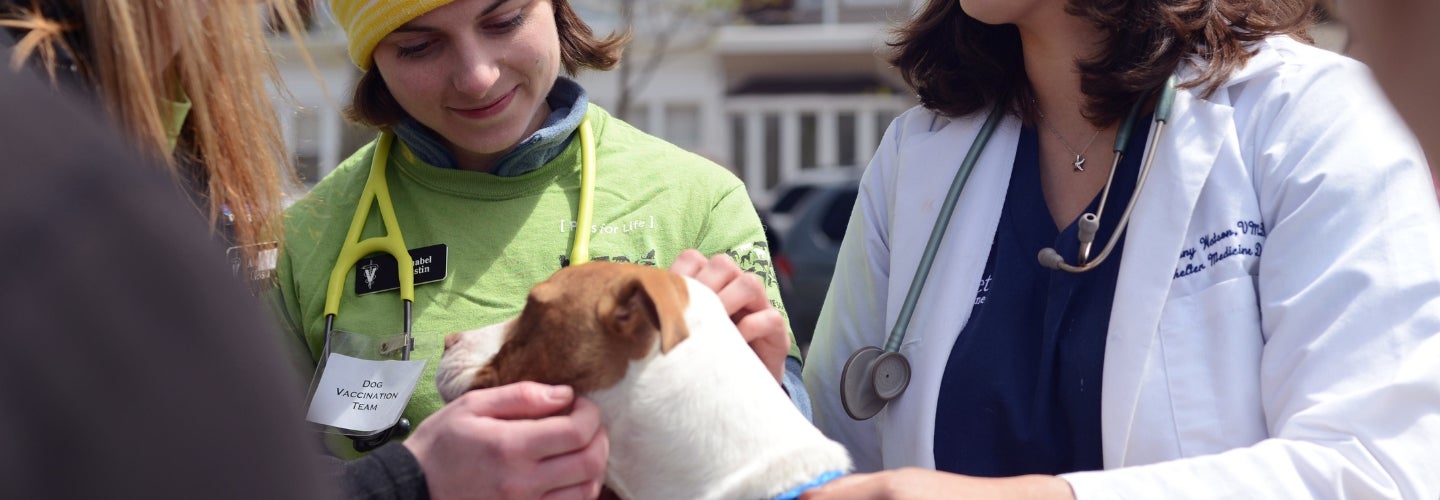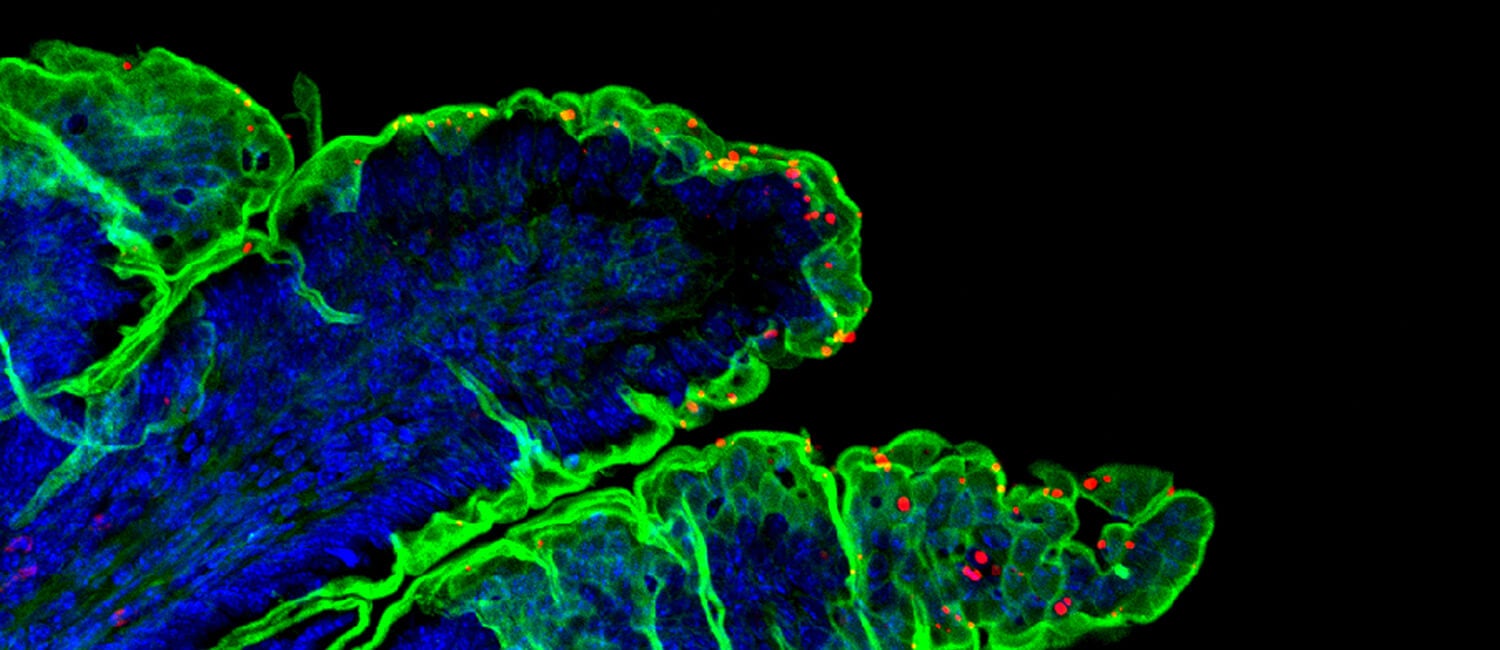
Research
Penn Vet scientists bring a valuable veterinary component to the table of scientific exploration, creating novel applications to improve animal health outcomes while also providing invaluable translational knowledge needed to advance human health.
Accelerating Research
Penn Vet’s research centers and programs (RCPs), and faculty laboratories, serve as a hub of discovery where scholars, students, and members of Penn’s biomedical community accelerate veterinary medicine’s impact on animal, human, and environmental health worldwide. Penn Vet’s RCPs generate courses, academic programs, community outreach, peer-reviewed research, and partnerships among academics, government, and industry.
In addition to its strengths in biomedicine, Penn Vet has a distinctive niche in infectious disease research, particularly in the areas of immunology and host-pathogen interactions, with robust research portfolios in neglected tropical diseases and diseases of poverty such as hookworm, the acute parasitic disease Schistosomiasis, malaria, Ebola, and other hemorrhagic viral illnesses.
Leveraging experience
Universally Recognized
Faculty Labs
Nationally in per-faculty funding from NIH
Research Centers and Programs
Featured Center
Penn Vet Working Dog Center
Penn Vet’s Working Dog Center aims to advance research and the application of the newest scientific findings and veterinary expertise to optimize the performance of scent detection dogs.
Research and Core Laboratories
Penn Vet faculty are engaged in ongoing, groundbreaking research. Additionally, our research facilities include state-of-the-art core laboratories. Learn more about both the Philadelphia and Kennett Square campuses research.
connect
Research Events and Newsletter
Penn Vet’s cornerstone research events and newsletter showcase the innovative science, collaborations, and discoveries emerging from our faculty.

Research News

Wild birds are driving the current U.S. bird flu outbreak (link is external)
Since late 2021, a panzootic, or “a pandemic in animals,” of highly pathogenic bird flu variant H5N1 has devastated wild birds, agriculture, and mammals.

Behind the Breakthroughs: Amy Johnson
Balancing clinical care with scientific inquiry, Penn Vet’s Amy Johnson leads efforts to decode the complexities of neurologic diseases in horses
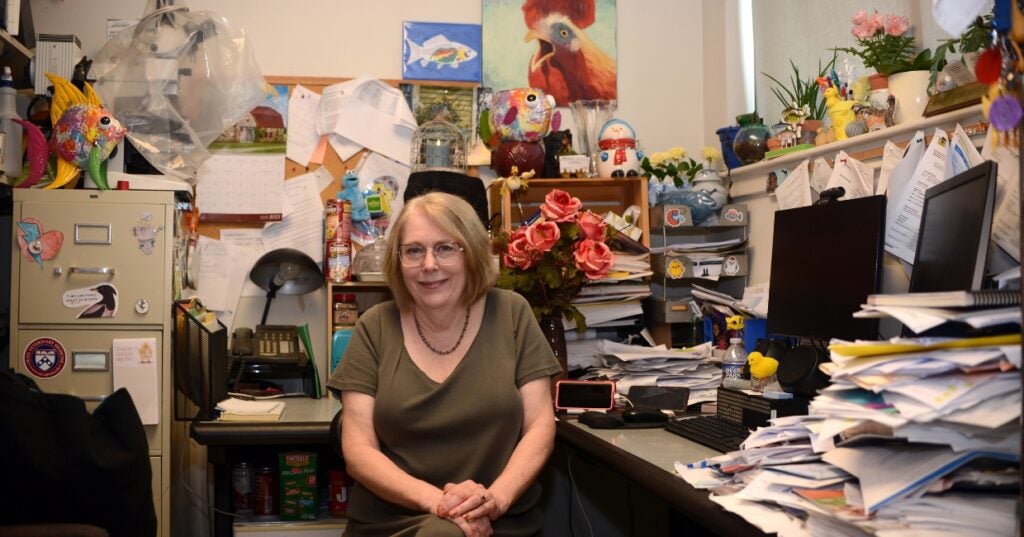
In the Office with Donna Kelly, DVM, MASCP, DACPV, DACVPM
Donna Kelly, DVM, MASCP, DACPV, DACVPM, shares her New Bolton Center office with the campus’s microbiology reference library.

Penn Vet’s Wildlife Futures Seek to Unravel the Mystery of the Disappearing Barn Owl
Penn Vet’s Wildlife Futures Program and the Pennsylvania Game Commission (PGC) have been engaged in a collaborative effort to identify the causes of these owls’ decline and any actions that…

